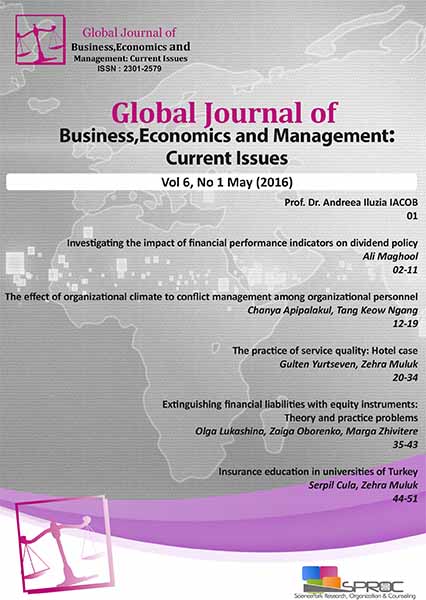Extinguishing Financial Liabilities with Equity Instruments: Theory and Practice Problems
Extinguishing Financial Liabilities with Equity Instruments: Theory and Practice Problems
Author(s): Olga Lukashina, Zaiga Oborenko, Marga ZhivitereSubject(s): Financial Markets
Published by: Birlesik Dunya Yenilik Arastirma ve Yayincilik Merkezi
Keywords: capitalization of debts; equity instruments; fair value; financial liability; set-off of claims; income tax;
Summary/Abstract: In 2010 the EU introduced “fair value” accounting rules to evaluate equity instruments issued by debtors for creditors to extinguish their financial liability to the creditor. An entity shall not apply these rules to transactions in situations where the creditor is also a direct or indirect shareholder. Therefore, the approaches to accounting for such a creditor’s “internal” liabilities, which are transferred to an entity’s own equity is an issue that remains to be resolved. It gives rise to voluntarism by independent valuators of the contribution to the equity. This enables tax evasion, since creation of “internal” debt is often used to legalize a capital obtained illegally. This issue is particularly relevant for small and medium sized businesses that are credited mostly by their owners. In Latvia, such businesses account for over 90% of the market. The purposes of this study are: 1) to prove that state regulation of the evaluation of all debts transferred to a debtor entity’s equity is essential; 2) to define approaches to the choice of methods when the amount of capitalized debt is evaluated. The main findings of this investigation are: Debt capitalization improves financial stability indices of both the debtor (entity issuing equity) and the creditor. However, a debt-for-equity swap transaction opens the opportunity for tax evasion, as well as for the legalization of illegally obtained funds. The Commercial Law of Latvia does not contain any rules on capitalization of debt, which enables a voluntary approach to this process. An institute of independent valuators of property contributions to equity is not sufficient to prevent a shadow economy, the illegal takeovers of businesses, as well as losses borne by creditors when they obtain a share of a debtor’s equity instead of the debt.
Journal: Global Journal of Business, Economics and Management: Current Issues
- Issue Year: 6/2016
- Issue No: 1
- Page Range: 35-43
- Page Count: 9
- Language: English

